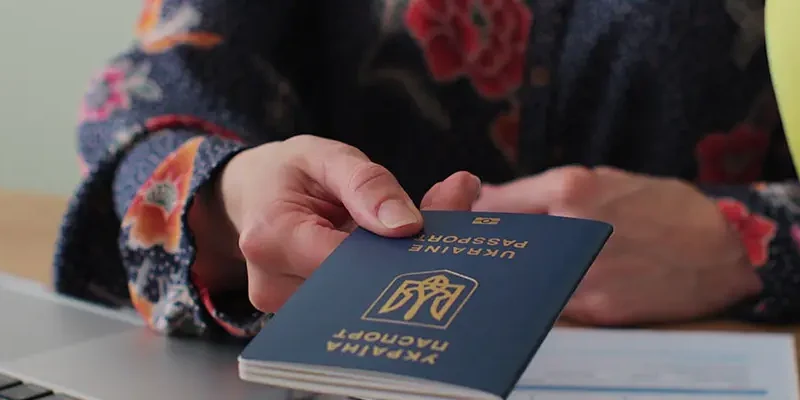Who is eligible for a Family Visa?

The process to become a legal permanent resident in the United States can be complicated, but there are options for those seeking to reunite with their loved ones. One of the most common paths is determining if you are eligible for a Family Visa.

This type of visa allows U.S. citizens and permanent residents to sponsor their family members to obtain residency in the United States. Learn who is eligible for a family visa and how they can benefit from this process.
Types of Family-Based Visas
Family-based visas are designed to allow family reunification in the United States. There are two main categories: visas for immediate family members and family preference visas. It is important to understand the differences and requirements for each of these categories.
Visas for Immediate Family Members


The immediate family members of U.S. citizens have a direct path to obtain a family visa. Below are the different types of visas for immediate family members:
- IR-1 Visa: For spouses of U.S. citizens.
- IR-2 Visa: For unmarried children under the age of 21 of U.S. citizens.
- IR-3 Visa: For orphans adopted abroad by U.S. citizens.
- IR-4 Visa: For orphans who will be adopted in the U.S. by U.S. citizens.
- IR-5 Visa: For parents of U.S. citizens who are at least 21 years old.
These types of visas are not subject to annual limits on the number of visas issued, making them more accessible compared to family preference visas.
Family Preference Visas


For those who do not qualify as immediate family members, family preference visas offer an additional option. However, these visas are subject to annual quotas, which may result in long waiting times. The categories are as follows:
- F1 Visa: Unmarried children of U.S. citizens and their minor children.
- F2 Visa: Spouses, minor children, and unmarried children over 21 years of age of permanent residents.
- F3 Visa: Married children of U.S. citizens, their spouses, and their minor children.
- F4 Visa: Siblings of U.S. citizens, their spouses, and their minor children.
Eligibility Requirements for a Family Visa in the United States
To obtain a family visa, certain requirements must be met. The sponsor, meaning the U.S. citizen or permanent resident, must demonstrate their ability to financially support the sponsored family member, preventing them from relying on public assistance. Proof of the family relationship must also be provided, such as birth, marriage, or other official documents.

In the case of family preference visas, due to annual limitations on the number of visas, it is common for there to be prolonged waiting times. It is crucial to be prepared for these potential delays and to closely follow the process.
Changes in Family Visa Laws for 2024
The year 2024 brings significant changes in immigration laws, especially regarding family visas. It is crucial to stay informed about these changes to avoid errors during the application process. Some of the most relevant changes include:
- Adjustments to visa quotas: The government has reviewed annual quotas for certain visa categories, which may affect waiting times.
- New documentation requirements: Additional documentation is now required to demonstrate the family relationship and the sponsor’s financial stability.
- Changes in processing times: Measures have been implemented to expedite certain processes, although in some cases, waiting times may increase due to high demand.


Staying informed about these changes is essential to ensure a successful application.
Benefits of the Family Visa in the United States
Obtaining a family visa not only allows for reunification with loved ones, but also offers multiple benefits for immigrants, such as:
- Access to permanent residency: Once you obtain the family visa, you can apply for permanent residency, allowing you to live and work legally in the United States.
- Access to social benefits: As a permanent resident, you will have access to certain social benefits, such as health insurance and public education.
- Possibility of citizenship: After a certain time as a permanent resident, you can apply for U.S. citizenship.
- Family reunification: The possibility of living with your family and building a future together.
Waiting Time for Family Reunification Visa
The waiting time to obtain a family reunification visa varies depending on the visa category and current demand. Visas for immediate family members usually have a shorter waiting time as they are not subject to annual quotas. However, family preference visas can have significantly longer waiting times, especially in the F1 and F4 categories.

In some cases, the waiting time can be several years. It is important to be patient and prepared for potential delays. Working with an experienced immigration attorney can help speed up the process and avoid mistakes that may delay your application further.
How to be eligible for a Family Immigration Visa?
Eligibility for a family visa depends on several factors, including the relationship with the sponsor and compliance with the requirements set by USCIS. Here are some key points to consider:
- Family relationship: You must demonstrate that you have a close relationship with the sponsor, whether as a spouse, child, sibling, or parent.
- Financial requirements: The sponsor must meet financial requirements to ensure they can support the immigrant being sponsored.
- Compliance with immigration laws: You must ensure that you have not violated any immigration laws that may affect your eligibility.
Family Visa Process in the United States


The process to obtain a family visa generally involves the following steps:
- Petition submission: The sponsor submits a petition to USCIS on behalf of the foreign family member.
- Petition approval: Once the petition is approved, the case is sent to the National Visa Center (NVC) for processing.
- Visa application: The sponsored family member applies for the visa at the U.S. consulate or embassy in their home country.
- Consular interview: The applicant must attend a consular interview to determine their eligibility.
- Entry to the United States: If the visa is approved, the applicant can travel and become a permanent resident.
Conclusion
The process to become eligible for a family visa can be long and complicated, but the benefits are immense. Family reunification and the possibility of building a new life in the United States are achievable goals with the right guidance. If you are considering applying for a family visa or have questions about your eligibility, it is crucial to have the assistance of expert immigration attorneys.
Don’t wait any longer! Schedule a consultation today with our immigration attorneys in Dallas and begin your journey to family reunification in the United States. Schedule an appointment and let us help you navigate this process successfully.
Buscar
Categorías
Populares
Recientes
Programe una cita con nuestro equipo de inmigración
Para cualquier duda, comuníquese con uno de nuestros asesores legales
+1 (214) 501-0560
LUNES - VIERNES:
8:00 AM - 6:00 PMSÁBADOS - DOMINGOS:
Cerrado








